- Disabling protests - 30th June 2025
- A good storybook - 30th June 2025
- Cancel culture part three - 27th June 2025

During 23 years with the BBC, and 40 years in journalism, our Editor, Welshman Phil Parry, was often confronted by official secrecy (as well as its damaging effects), so regularly had to use subterfuge to get at the truth, and the spotlight is now thrown on this with it today emerging that transparency is playing a key role in countries turning to states other than China for funding.
Earlier Phil has described how he was helped to break into the South Wales Echo office car when he was a cub reporter, recalled his early career as a journalist, the importance of experience in the job, and making clear that the ‘calls’ to emergency services as well as court cases are central to any media operation.
 He has also explored how poorly paid most journalism is when trainee reporters had to live in squalid flats, the vital role of expenses, and about one of his most important stories on the now-scrapped 53 year-old BBC Wales TV Current Affairs series, Week In Week Out (WIWO), which won an award even after it was axed, long after his career really took off.
He has also explored how poorly paid most journalism is when trainee reporters had to live in squalid flats, the vital role of expenses, and about one of his most important stories on the now-scrapped 53 year-old BBC Wales TV Current Affairs series, Week In Week Out (WIWO), which won an award even after it was axed, long after his career really took off.
Phil has explained too how crucial it is actually to speak to people, the virtue of speed as well as accuracy, why knowledge of history and teaching the subject is vital, how certain material was removed from TV Current Affairs programmes when secret cameras had to be used, and some of those he has interviewed.

He has disclosed as well why investigative journalism is needed now more than ever although others have different opinions, how the coronavirus (Covid-19) lockdown played havoc with media schedules, and the importance of the hugely lower average age of some political leaders compared with when he started reporting.
Keeping things secret is never a good idea, but now it is emerging that transparency is a fundamental reason behind developing countries turning to democracies for money.
Secrecy leads to a ‘bunker-mentality’ in organisations, of ‘we are right, and outsiders shouldn’t question us’, so insiders (potential whistleblowers) are afraid to speak out about processes which are wrong, fearing for their jobs.
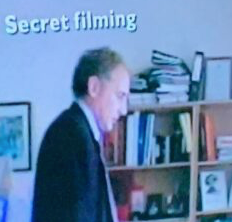
This has meant, unfortunately, that I have often had to use subterfuge to establish the facts.
Apart from knocking on doors during investigations, I have also used secret recordings, posed as a long-lost relative, and kept a whirring tape recorder in my bag.
For one BBC TV Panorama programme I presented, I wore a hidden camera in my tie which became very hot.
I kept having to move my tie otherwise the heat would have become unbearable on my chest!

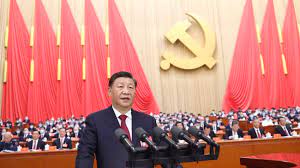
For years we have been hearing about China’s controversial ‘Belt and Road Initiative (BRI)’ providing lending for huge infrastructure projects (like ports), in developing countries.
This policy was hugely contentious because it was seen as a way for Xi Jinping to project the influence of China, lumbering countries which could ill afford it with huge debts.
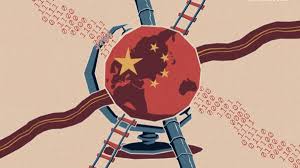
Now it is being revealed that developing countries have long turned to democratic states for funding, and transparency over the deals is a central issue (the financial transactions involving China are incredibly opaque).
Japan, South Korea, and Taiwan, have been providing cash for major projects FOR YEARS!
These regional partners are like-minded because they believe in the same things: transparency, low corruption, the rule of law, safe sea lanes and so on.
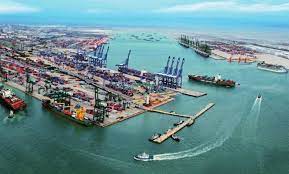
Such qualities also define a prominent American-led ambition for a “free and open Indo-Pacific”, formulated with China’s disdain for international rules and grandiose territorial as well as maritime claims, in mind.
So it is no wonder that overseas development assistance is increasingly shading into security policy, which China doesn’t like.

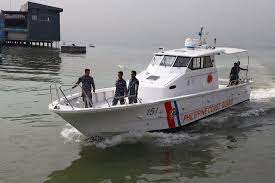
Japan, for instance, provides the Philippines with patrol boats to police its waters against piracy and smuggling; a greater presence on the water also helps against frequent incursions by Chinese vessels, including warships.
Projects to help improve ports, which could be used for both civil and military purposes, are similarly double-edged.
This is good news, but the law around the world still stands in the way of complete openness.
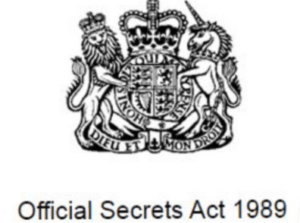 For example the UK’s Official Secrets Act 1989 is a huge improvement on what went before, but it still creates offences connected with the unlawful disclosure of official information in SIX categories by government employees.
For example the UK’s Official Secrets Act 1989 is a huge improvement on what went before, but it still creates offences connected with the unlawful disclosure of official information in SIX categories by government employees.
What are journalists meant to do in finding out what is going wrong?!
One website, which offers advice to whistleblowers, tells them: “It’s important to remember…that you may not be protected if you break (the) law in blowing the whistle. For example, if you’ve signed the Official Secrets Act as part of your employment contract”.

In America there is a long history of whistleblowers exposing terrible practices, because of a culture of secrecy.
The extraordinary case of the trans soldier and whistleblower, Chelsea Manning, is only a more recent one.
Ms Manning (whose parents met while his father was serving at RAF Brawdy six miles from St David’s in Pembrokeshire) was convicted by court-martial in July 2013 of violations of the Espionage Act after disclosing to WikiLeaks nearly 750,000 classified, or unclassified but sensitive, military and diplomatic documents.
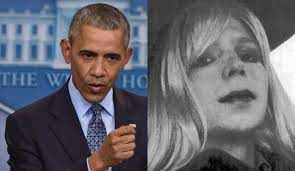
She was sentenced to 35 years at the maximum-security US Disciplinary Barracks at Fort Leavenworth.
On January 17, 2017, Barack Obama commuted her sentence to nearly seven years of confinement dating from Ms Manning’s arrest in 2010.
In 1969 Ron Ridenhour revealed the Mai Lai massacre during the Vietnam War.
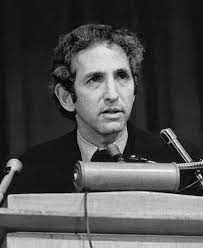
It had been kept secret that on March 16, 1968, a company of the 23rd Infantry Division killed up to 400 Vietnamese civilians, and he went on to become an investigative journalist like me.
Two years later, in the same war, Daniel Ellsberg gave what came to be known as the ‘The Pentagon Papers’ to several newspapers. He showed how even though the public was led to believe by officials that the war was unwinnable, it was actually escalated.
But it hasn’t simply been government policy which has been exposed.
In 1971 Frank Serpico blew the whistle on police corruption in New York in the late 1960s and 1970s.
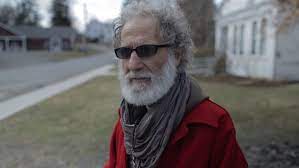
Mr Serpico showed how bribes estimated to be in the millions of dollars were taken by police officers and their associates.
He, and a sympathetic officer, were forced to go to the New York Times (NYT) to spill the beans.
Events like these only serve to show how harmful secrecy can be, and journalists HAVE to get involved.
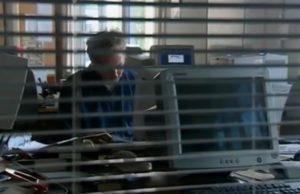
It seems a shame that China does not allow free and independent journalistic inquiry.
Its influence around the world might benefit from it…
The memories of Phil’s decades long award-winning career in journalism (during which he was often confronted with the awful effects of secrecy and was forced to turn to undercover methods) as he was gripped by the incurable neurological condition, Hereditary Spastic Paraplegia (HSP), have been released in a major book ‘A GOOD STORY’. Order it now!

Publication of another book, however, was refused, because it was to have included names.
Tomorrow – Phil looks at why a rare meeting between Presidents Joe Biden and Xi Jinping underline how journalists like him work in a free media environment, but it doesn’t exist in China.










